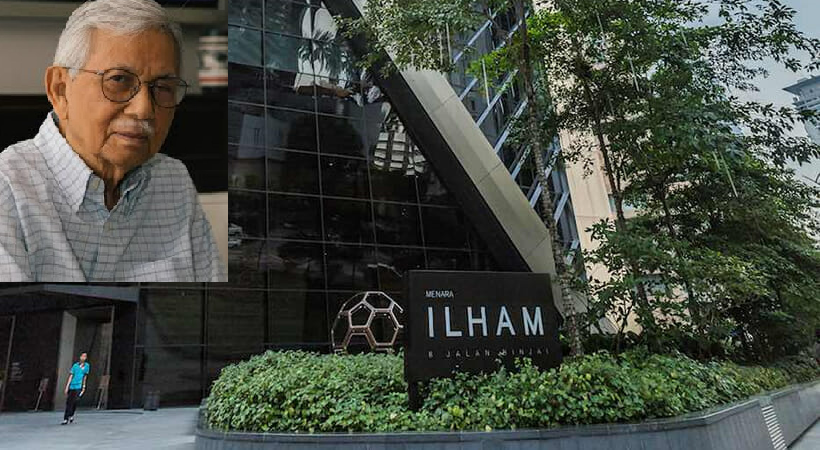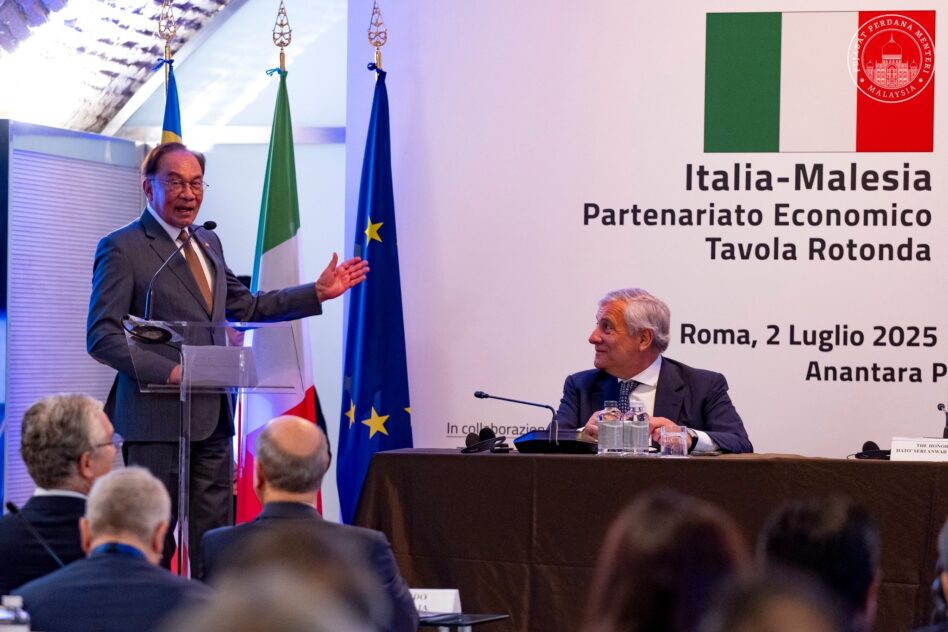Editor’s Note: This is the second part of the opinion editorial that was published yesterday (Dec 27).
IT IS extremely unlikely that former finance minister Tun Daim Zainuddin was such a good businessman to the extent that he was already wealthy before he joined politics.
When you are successful in a field, you won’t abandon it to do something else in another field. Shah Rukh Khan, Leo Messi, Taylor Swift or Warren Buffett, for example, will not abandon the field that they dominate in order to involve themselves in some other fields like politics simply because they are extremely successful in their respective field.
If Daim was so successful as a businessman that he was extraordinarily rich before he joined politics, he would not have joined politics in the first place.
If he became rich only after he joined politics, it can only mean that he used his political connections and positions to move the wealth of the nation or the organisations he belonged to in a way that benefited him and his associates.
His actions, however, might not be legally wrong even if we can argue that it is wrong in terms of principle.
By principle, it might be wrong for a white man to capture a free black man from Africa and turn him into a slave in America but we know for a fact that that what the white man did was within the ambit of the law of the times because it is the white that wrote the law of the times.
In the same way, even it is wrong by principle for the elite inner circle that Daim and Dr Mahathir is a part of to use their power and position to gain an extraordinary amount of wealth, it is not necessarily the case that we will be able to prove that what they did was against the law because they were the ones that wrote the law at the time.

Not easy to act
The reason that Dr Mahathir and his inner circle had the absolute power to write and interpret the law is because we empowered them to write and interpret the law. Likewise, the reason that we empowered them to do so is because Dr Mahathir and his inner circle promised to deliver us something we wanted, hence we thought we could trust them to do right by us.
Singaporeans also trusted Lee Kuan Yew and his inner circle to do right by them. He had also used the near absolute power that the Singaporeans had granted him to him to make all sorts of laws, including one that banned chewing gum in the city state.
But Kuan Yew owned up to his promise of turning Singapore into a developed nation and making Singaporeans one of the richest people in the world without making himself or his family extraordinarily rich in the process.
On the contrary, Dr Mahathir and his inner circle only delivered a fraction of what they promised while making themselves extraordinarily rich in the process.
He and his inner circle might have failed to own up to the promise that they would make Malaysia a developed nation but instead made themselves immensely rich in the process despite failing to deliver what they promised.
However, considering that they did deliver successes in the form of the PETRONAS Twin Towers and Putrajaya, they will probably argue that they did not break their promises or betray the country because they did develop Malaysia to an extent.
Henceforth, there can be argument that what they took from the country is a fair and proportionate amount that commensurate with their contributions.
Once we give someone absolute power so much so that they can write any law to legalise everything that they do in the hopes that they will use the power that we give them to get us what we want, we cannot act against them later even if we feel that they had not lived up to their end of the bargain.
This is because we will have to break our own laws in order punish them for their sins and shortcomings. More so, if we make it legal to break our own laws, we are basically signing up for a revolution that will sever our ties to the past.

Pulling ‘strong cables’
The problem with dealing with the excesses of Mahathirism is two-fold. On one hand, we need to do something to exorcise the ghost of Mahathirism that is continuously haunting us.
If we do not exorcise ourselves of Mahathirism, we might never be able to return to our pre-Mahathirism root and once again become people who believe that wealth is only rightfully accumulated by creating value in the market.
Instead, we will continue believing that all we have to do to become extraordinarily rich is by having “strong cables” without needing to create anything of value in the process. If left unchecked, this type of belief system will continue to lead us down the path of deterioration and ruin.
However, we might need to break our own laws to rid ourselves completely off the excesses of Mahathirism or to act against the remnants of Mahathirism that still exist today.
But once we break our own laws, we might sever our ties with our past to such an extent that the Malaysia we have today is no longer the same country as the one that was formed in 1957 and 1963.
So how do we ensure that the errors of our past do not continue to colour our future without severing our ties to our past?
Herein lies the rub. I don’t think there is any easy answer to this question. To address this matter, we will have no choice but to rely on the wisdom and sagacity of Prime Minister Datuk Seri Anwar Ibrahim and the Madani government.
Now that the Madani government has seized Daim’s Menara Ilham, it looks like they have decided to take firm and concrete steps to exorcise us of the excesses of Mahathirism.
As to whether they will be able to redeem our country from the mistakes we made in the past without completely severing our ties to the past or starting a revolution is something that we are going to find out one way or another in the near future. – Dec 28, 2023
Nehru Sathiamoorthy is a roving tutor who loves politics, philosophy and psychology.
The views expressed are solely of the author and do not necessarily reflect those of Focus Malaysia.









